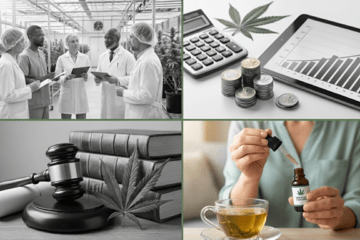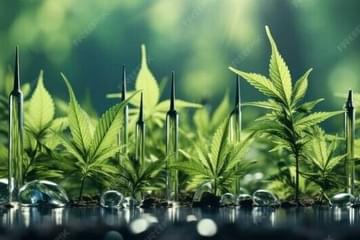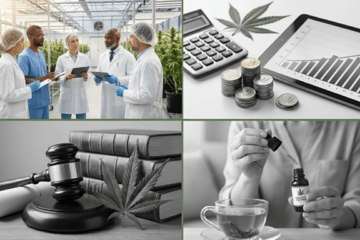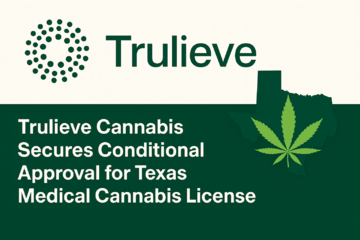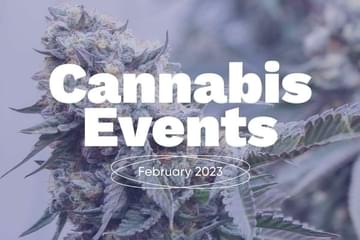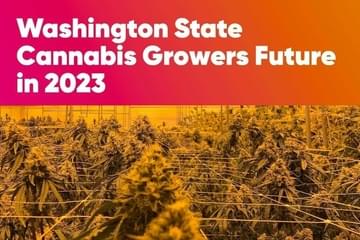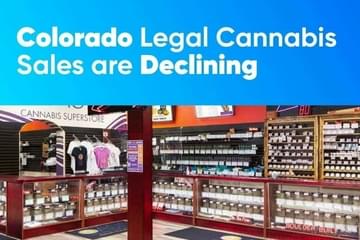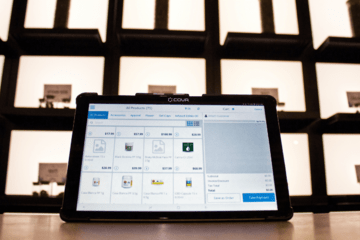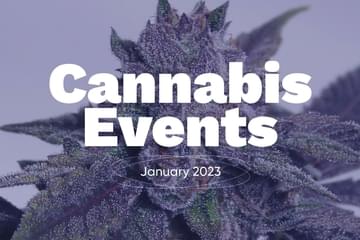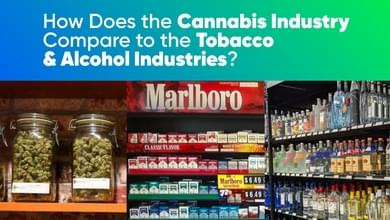
How Does the Cannabis Industry Compare to the Tobacco & Alcohol Industries?
Published on 1/13/23
The cannabis industry, though still in its infancy pre-legalization, is often compared to other recreational drug industries like tobacco and alcohol. Though tobacco faces more social stigma than alcohol, both are federally legalized and readily available for any American over the age of 21. Recreational cannabis use, however, is still very stigmatized and only legal in 19 states plus Washington, D.C., and Guam.
As the approval rate for recreational cannabis use climbs, Big Tobacco and Big Alcohol are growing more concerned about this competitive industry. While some previous studies have shown that alcohol vs. cannabis is more competitive than cannabis and tobacco, is this still the case in late 2022?
Alcohol, Tobacco, and Cannabis: Prohibition Industries
One thing that all of these recreational drug industries have in common is they have, at one point or another, had a contentious relationship with the U.S. government.
Alcohol and Tobacco Post-Prohibition
 Unsplash
UnsplashWhile there is tension between the two industries, cannabis vs. alcohol
have key similarities in terms of their prohibition history. Both substances gained legalization momentum when potential tax revenues became too big to ignore, especially in a period of increased governmental debt. Alcohol was federally prohibited from 1920 - 1933, while The Marihuana Tax Act of 1937 made marijuana federally illegal from its inception to the present day.
Tobacco, on the other hand, has never been fully federally banned in the same way. In the late 20th century, as the risks of secondhand tobacco smoke became more public, states began to ban public indoor smoking altogether. In 1998, California's smoking ban encouraged other states, such as New York, to implement similar regulations. As of 2009, 37 other states had joined with some form of a smoking ban.
Though alcohol use spiked post-Prohibition, consumption per capita has been decreasing since the 1980s, especially among younger generations. For example, the share of college students who drink daily fell from 6.5% in 1980 to 2.2% in 2017. Thanks to more research and information on the substance, alcohol is now seen as more dangerous than it was in the past; alcohol use is responsible for 2.8 million deaths worldwide. To help mitigate their industry's decline, there is now U.S. liquor stock invested in marijuana. Big Alcohol has had to adapt its approach, including creating new products, from microdose cannabis seltzers to cannabis spirits for cannabis connoisseurs of all comfort levels.
Big tobacco has faced similar problems as of late, having to pivot their product approach in light of many reports of the long-term negative health consequences of smoking cigarettes. Because of this, tobacco companies have introduced smokeless products like vaporizers. E-cigarette use among high schoolers increased from 11.7% to 27.5% between 2017 and 2019. Despite this growth, Big Tobacco is broadening its horizons towards the cannabis industry, not having to depend on tobacco sales alone.
Is Cannabis Bigger Competition to Alcohol or Tobacco?
 Unsplash
UnsplashIn 2019, a team of scientists at the University of Georgia designed a study to test whether internet browsing habits changed in response to marijuana legalization legislation. Specifically, they used alcohol and tobacco-related web traffic metrics to see if pro-marijuana legislation produced any spikes or reductions in interest to the other industries.
The study found that search volumes for "marijuana and marijuana-related terms" spike post-legalization. They also found that search volumes for "alcohol-related terms" significantly dipped. In their conclusion, the researchers wrote, "We can infer a reduction of 10.9% in alcohol searches after recreational cannabis legalization relative to the average pre-treatment period."
According to a study in the Journal of Cannabis Research, there is a negative relationship between legalizing marijuana on alcohol sales. Compared to states that have not yet legalized recreational cannabis, Colorado residents showed a 13% average monthly decrease in all alcoholic product purchases combined.
On the other hand, the researchers found that cannabis legalization actually increased "tobacco-related" search volumes, advertising impressions, and advertising revenues. Though the cannabis industry may pose a threat to the alcohol industry, this study says, the tobacco industry vs. marijuana may not be an adversary after all. This is likely due, in part, to the popularity of "spliffs," or cannabis joints rolled with tobacco.
Today, though, the cannabis industry shifts weekly, if not daily, thanks to ever-changing laws and shifting societal standards, so the available predictions of the cannabis industry's future are highly estimated.
There are considerable differences in the annual cannabis sales vs. other industries. Tobacco sales (which were $839 billion in 2018) are expected to grow approximately 1.2 percent through 2023, while alcohol sales ($774 billion) are projected to grow roughly 1.4 percent. In contrast, legal cannabis sales are expected to hop to $166 billion in 2025 from $12 billion in 2018.
Both alcohol and tobacco giants already accustomed to highly processed environments can perfect formulations, control dosages, and automate processing and packaging as they dip their toes into the cannabis market. Today, it seems to remain true that alcohol is more threatened by the emergence of the legal cannabis industry than tobacco. Mainly because there are fewer similarities between alcohol and marijuana than between tobacco and marijuana. Where a nonalcoholic, cannabis-infused beverage could merely replace an alcoholic drink for some consumers, current tobacco consumers may not directly substitute cannabis but instead add it to their daily routine to consume both tobacco and cannabis products.
Where Cannabis Stands Today
Today, the cannabis industry has seen exponential growth and will only continue to do so as legalization increases across the country. Cannabis' prohibition period has been six times longer than alcohol's, not to mention there are still some 30 states that have yet to legalize recreational cannabis. The industry also holds a significant and growing influence amongst Americans, both old and young: the number of Americans who consume cannabis doubled from 28 million in 2009 to 48 million just ten years later. As the era of cannabis prohibition could be coming to a close, there is exponential potential for the market to collaborate with and surpass its fellow substances in the recreational drug space: alcohol and tobacco.









